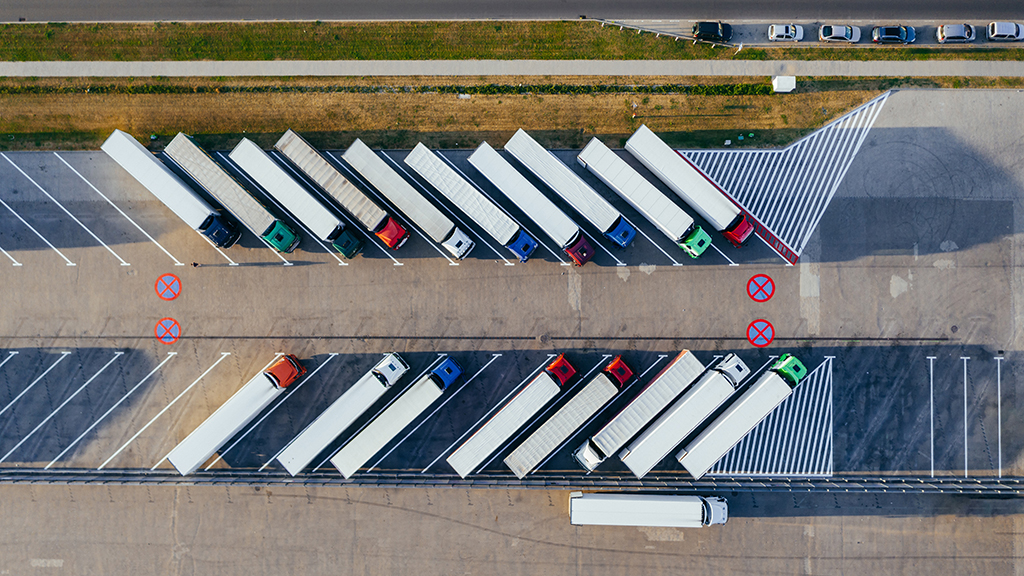The UOC leads a nationwide network of experts to help promote and develop sustainable transport
Researchers develop smart algorithms that will facilitate efficient decision-making in the logistics sector
"Although logistics and transportation pursuits represent an important industry for the world's economy and ultimately contribute to progress, they also put a strain on society and the environment, which must be alleviated if we want to guarantee a sustainable ecosystem". These are the words of full professor Ángel A. Juan from the research group Internet Computing & Systems Optimization (ICSO) at the Universitat Oberta de Catalunya (UOC). The researcher leads a nationwide research network comprising twelve universities, who together are facing some of the logistics and transportation sector's challenges, backed by experts in computer science, operative research, artificial intelligence and data analysis.
The project is being pioneered by the SI-Trans, the Spanish network for smart and sustainable transport, which has been endorsed by Spain's Ministry of Science, Innovation and Universities. According to this network, the country needs to address issues such as vehicle routing – the optimal set of routes for a fleet of vehicles that deliver to a given set of customers, on-demand deliveries of online purchases, and waste collection. Moreover, some potential solutions such as the deployment of electric vehicles "represent additional challenges like designing models for loading docks", added the UOC researcher, who also works with the Internet Interdisciplinary Institute (IN3).
SI-Trans is working in step with the European strategy for smart, green and integrated transport, which aims to boost the competitiveness of transport industries and achieve a resource-efficient communications system that is climate and environmentally friendly, safe and seamless for the benefit of all citizens, the economy and society. However, according to the experts, it is crucial to bear in mind that logistics and transportation systems do not exclusively comprise high-emission vehicles; they also contain fleets that can be heterogeneous, with low-emission, electric or hybrid forms of transport, including bikes and even driverless or self-driving cars. "The circulation of vehicles not only leads to environmental problems such as greenhouse gas emissions, but also to noise pollution and traffic. Therefore, we urgently need make our country's logistics and transportation sector more efficient and sustainable", advised Ángel A. Juan. This new UOC-led research network is looking into solutions such as a coordinated use of real-time data and product inventories, the design and integration of new technology derived from the Internet of Things (IoT), or the use of artificial intelligence algorithms, analytical methods and cooperation practices, all in aid of creating logistics and transportation systems that are socially and environmentally friendly.
The ICSO research group has launched several national and international projects that have developed a range of algorithm families: biased-randomized, to simplify the concept of time and space in standard algorithms; simheuristics, which are capable of resolving problems with uncertain variables and probabilistic limitations, while using simulation and optimization modelling; and learnheuristics, characterized by combining statistics and machine learning. The group is currently promoting a new kind of algorithm based on the concept of agile optimization, "which allows us to respond in real time to certain operative challenges associated with introducing new mobility models, such as carpooling, ridesharing or carsharing", highlighted Juan.
The consortium aims to join forces with different research groups around the country who are also focused on developing smart and sustainable logistics and transportation systems, with a view to fostering knowledge exchange in this field. The project is also looking to increase basic training for young researchers in this sector, the transfer of knowledge among universities and businesses, and international cooperation among scientists and other countries in Europe and the Americas with the help of the science and technology development programme, CYTED. The Universitat Autònoma de Barcelona, the University of Burgos, the University of A Coruña, the Universidad Pablo de Olavide, the Public University of Navarra, the Universidad de La Laguna, Pompeu Fabra University, the Universitat Politècnica de Catalunya, the Universidad Politécnica de Madrid and the Universitat Politècnica de València are also collaborating with the UOC on the SI-Trans project. Spain's Ministry of Science, Innovation and Universities is funding the network via their call for "Networks of Excellence" dynamization actions, affiliated with the State Programme for Knowledge Generation and Scientific and Technological Strengthening of the RDI System (State Subprogramme for the Generation of Knowledge).
In addition to this initiative, since 2016 the UOC has been coordinating SmartTransLog@EU, a European consortium for organizing student, researcher and teaching and administrative staff stays in different research centres around Europe. The aim is to analyse the critical, specific aspects of the logistics and transportation sector that are in need of improvement.

Experts UOC
Press contact
-
Editorial department
